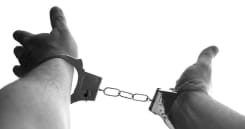When people think of the word addiction, most immediately think of alcohol and other illicit substances. Although most people will associate addiction with substances, many of not aware that people can an addiction can occur without the use of drugs and alcohol. Process addictions involve habitual and compulsive behaviors that cause the same rush and euphoria felt when people abuse drugs and alcohol. It may sound strange, but process addictions such as sex addiction, food addiction and gaming addiction are very real—and they are detrimental to one’s
health and well-being.
What is Process Addiction?
Commonly known as behavioral addictions, process addictions involve a compulsion to perform an action repeatedly despite negative consequences. While process addictions such as sex addiction, food addiction or gaming addictions don’t involve substances, they share similar characteristics to drug and alcohol addiction. First, process addictions involve the same reward circuitry in the brain as do substance addictions. Secondly, people who suffer from process addictions are unable to control their behavior once it becomes habit.
Additionally, people with behavioral addictions will increasingly become fixated on a specific behavior. People will go to tremendous lengths to avoid feeling uncomfortable that would result from stopping the action altogether. People who deal with process addiction will continue to take part in their specific compulsive behavior despite the negative outcomes that it may cause. These actions not only cause pain and guilt for the addict, it also affects their family and other loved ones.
Much like drug addictions, process addictions such as sex addiction and food addiction are the result of familial, societal and environmental factors. Other causes include unresolved trauma or underlying mental illness. Additionally, behavioral addictions can arise due to continued stress in one’s life. Process addictions can form due to one of these factors or a combination of multiple factors.

Seeking CBT therapy for sex addiction is still a common way to deal with the problem. Is this an effective form of treatment?
More infoWhat are Examples of Process Addictions?
Besides gaming addiction, sex addiction, and food addiction, some other common process addictions include the following:
- Porn addiction
- Exercise addiction
- Shopping addiction
- Internet addiction
- Gambling addiction
The Signs and Symptoms of Process Addictions
Process addictions share similar symptoms to those found in those struggling with drug addiction. Symptoms include the following:
- Obsessive thinking about
- Compulsive “doing” of the behavior and reduced ability to control that behavior
- Engaging in compulsive behavior despite the negative consequences experienced.
- Ignoring work, school and family obligations
- Engaging in the addictive behavior in order to cope with emotions and feelings
- Rationalizing, minimizing or downplaying the severity of the problem
- Developing a tolerance the behavior so that the individual needs to increase the frequency or intensity of the behavior
- Feeling significant unease or “withdrawal” when the behavior is stopped
Additionally, people who deal with process addiction may also start to abuse substances. The added substance abuse could be the result of trying to substitute substances for the compulsive behavior itself. The abuse of drugs and alcohol can also be the result of the compulsive behavior no longer bringing the addict any sense of completion or satisfaction.
Getting Help
For those who struggle with process addictions such as food addiction, sex addiction or gaming addiction, they need to seek immediate professional help. Much like those who deal with substance abuse, those who have process addictions may be very hesitant in seeking help due to shame or stigma. Despite these feelings, undergoing professional treatment will give people the tools and support they need to restore well-being.
Hawaii Island Recovery is one of the preeminent treatment facilities that feature proven process addiction treatment programs. We offer effective therapies such as CBT to help people identify and rectify problem behaviors. In the event the people also suffer from a co-occurring substance abuse issue, Hawaii Island Recovery offers top-notch drug treatment services and as well dual diagnosis treatment.
Our experienced and compassionate staff will work with each client to develop an individualized treatment plan that fits their unique and specific needs. If you or a loved one need help, today is the day you call Hawaii Island Recovery.
 Hawaii Island Recovery
Hawaii Island Recovery 










